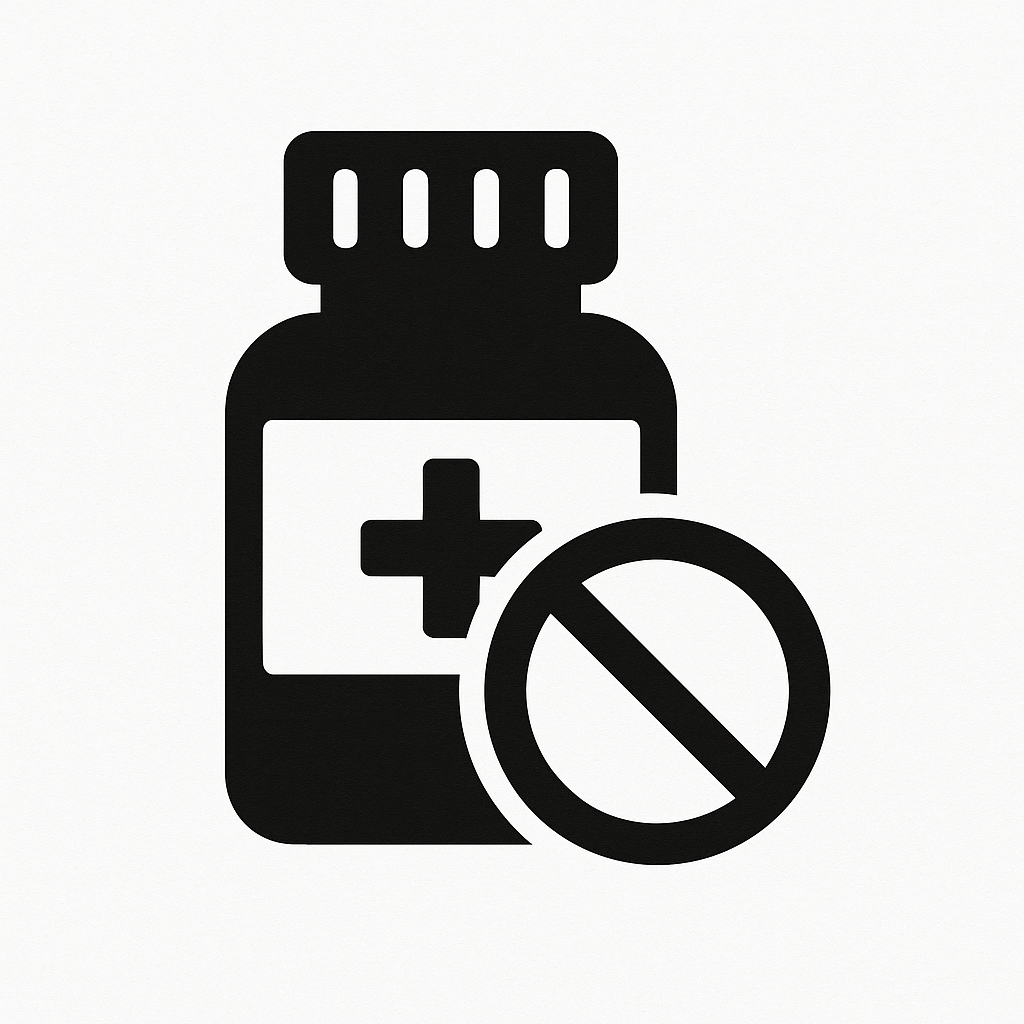
Our Guide on What to Drink To Detox Your Stomach
In today's world of processed foods, stress, and environmental toxins, digestive health has become a major concern for countless people. Bloating, gas, indigestion, and general stomach discomfort can significantly impact quality of life. While the term "detox" is often misused in marketing, certain beverages can genuinely support your digestive system's natural functions, helping it work more efficiently.
Your stomach and digestive tract don't need dramatic cleanses or extreme interventions—they need support. The right beverages can reduce inflammation, promote beneficial bacteria, aid digestion, and help your body eliminate waste products effectively. This guide explores what to drink to support optimal stomach health based on scientific evidence and traditional wisdom.
Understanding Digestive Health and "Detoxification"
Before discussing specific beverages, it's important to understand what digestive health means and what realistic "detoxification" looks like.
Your digestive system is remarkably sophisticated, constantly breaking down food, absorbing nutrients, and eliminating waste. The stomach produces acid to break down food and kill harmful bacteria. The intestines absorb nutrients while housing trillions of beneficial bacteria that support immune function, produce vitamins, and protect against harmful organisms.
When we talk about "detoxing" the stomach, we're really discussing supporting these natural processes—reducing inflammation, promoting beneficial bacteria, eliminating waste efficiently, and giving the digestive system what it needs to function optimally.
Your liver, kidneys, digestive system, and skin already handle detoxification continuously. The goal isn't to replace these systems but to support them through hydration, anti-inflammatory compounds, and nutrients that promote healthy function.
The Foundation: Water
The single most important beverage for digestive health is plain water. Adequate hydration is essential for:
Breaking down food so nutrients can be absorbed properly. Preventing constipation by softening stool and supporting intestinal motility. Maintaining the mucosal lining of the intestines. Supporting kidney function to eliminate waste products. Regulating body temperature and transporting nutrients.
Most people don't drink enough water. Aim for at least 8 glasses daily, more if you're physically active, live in a hot climate, or consume caffeine or alcohol, which have diuretic effects.
While water alone may seem too simple, chronic mild dehydration contributes significantly to digestive complaints. Before adding specialized beverages, ensure you're drinking adequate plain water throughout the day.
Herbal Teas for Digestive Support
Herbal teas have been used for centuries to support digestive health, and modern research confirms many traditional uses.
Ginger Tea
Ginger is one of the most well-researched herbs for digestive support. It contains compounds called gingerols and shogaols that have powerful anti-inflammatory and antioxidant effects.
Research demonstrates that ginger can reduce nausea and vomiting, including morning sickness and chemotherapy-induced nausea. It speeds gastric emptying, helping food move through the digestive system more efficiently. Studies suggest it reduces bloating and gas by relaxing the smooth muscles of the intestines. Ginger appears to have antimicrobial properties that may help balance gut bacteria.
To make ginger tea, steep fresh ginger slices in hot water for 10-15 minutes, or use dried ginger. You can drink 2-3 cups daily. Add lemon and honey for additional benefits and improved taste.
Peppermint Tea
Peppermint tea is excellent for soothing digestive discomfort. The menthol in peppermint has antispasmodic properties that relax the muscles of the digestive tract.
Research shows peppermint can reduce symptoms of irritable bowel syndrome (IBS), including abdominal pain and bloating. It helps relieve indigestion by promoting bile flow. Studies indicate it may reduce nausea. The antimicrobial properties may help balance intestinal bacteria.
However, people with acid reflux should be cautious, as peppermint can relax the lower esophageal sphincter, potentially worsening reflux symptoms for some individuals.
Fennel Tea
Fennel seeds have been used traditionally throughout Europe and Asia for digestive complaints. Fennel tea can help reduce gas and bloating by relaxing intestinal muscles and allowing trapped gas to pass. It may stimulate digestive enzyme production. Traditional use suggests it helps with cramping and spasms. Some evidence indicates anti-inflammatory properties.
Steep crushed fennel seeds in hot water for 10 minutes. The licorice-like flavor is pleasant and soothing.
Chamomile Tea
Known primarily for its calming effects, chamomile also supports digestive health. It has anti-inflammatory properties that may soothe the digestive tract lining. Research suggests it can help with various digestive complaints including gas, indigestion, and diarrhea. The relaxing effects may help stress-related digestive issues. Some studies indicate antimicrobial properties.
Chamomile is gentle and suitable for regular consumption, making it an excellent choice for ongoing digestive support.
Dandelion Root Tea
While often dismissed as a weed, dandelion root has legitimate digestive benefits. It acts as a mild diuretic, supporting kidney function and reducing water retention. Traditional use includes supporting liver function, which is central to processing toxins. It may stimulate bile production, aiding fat digestion. Dandelion contains prebiotic fiber that feeds beneficial gut bacteria.
The taste is earthy and slightly bitter. Many people find it an acquired taste, but it can be mixed with other herbs for improved flavor.
Lemon Water: Simple and Effective
Starting your day with warm lemon water is a simple practice with real benefits. Lemon water provides vitamin C, an antioxidant that supports immune function. The acidity may stimulate digestive enzyme production. Adequate hydration first thing in the morning supports healthy bowel movements. Some people find it reduces bloating.
However, claims that lemon water "detoxifies" the liver or dramatically changes body pH are exaggerated. Your body tightly regulates pH, and drinking lemon water won't significantly alter it. The benefits are real but modest—primarily providing hydration with a small nutrient boost.
Use fresh lemon juice in warm (not boiling) water. Drink it first thing in the morning on an empty stomach for best results. Rinse your mouth afterward or drink through a straw to protect tooth enamel from the acidity.
Apple Cider Vinegar Drinks
Apple cider vinegar (ACV) has become extremely popular in wellness circles for digestive health. While some claims are overblown, ACV does offer legitimate benefits.
The acetic acid in ACV may improve insulin sensitivity and help regulate blood sugar levels. Some research suggests it can increase feelings of fullness, potentially supporting weight management. It may support beneficial gut bacteria growth. Traditional use includes aiding digestion, though research is limited.
To use ACV for digestive support, mix 1-2 tablespoons in a large glass of water. Never consume it undiluted, as the acidity can damage tooth enamel and irritate the throat and stomach. Drink it before meals, and use raw, unfiltered ACV with "the mother" for maximum benefits.
Green Tea: Antioxidant Powerhouse
Green tea contains powerful antioxidants called catechins, particularly EGCG (epigallocatechin gallate), which have anti-inflammatory effects throughout the body, including the digestive tract.
Research indicates green tea may support healthy gut bacteria composition. The antioxidants protect cells from oxidative damage. Some studies suggest benefits for liver health. Green tea may support metabolic health and fat oxidation.
However, green tea contains caffeine, which can be irritating for some people with sensitive stomachs. It also contains tannins that can interfere with iron absorption if consumed with meals. Drink green tea between meals rather than with food, and limit intake if you have iron deficiency.
Bone Broth: Nutrient-Dense Support
While technically more of a food than a beverage, bone broth deserves mention for its digestive benefits. Bone broth contains gelatin and collagen, which may support the intestinal lining. It provides amino acids like glutamine that are important for gut health. The minerals in bone broth support various bodily functions. It's easily digestible and soothing for upset stomachs.
Quality matters significantly with bone broth. Homemade from organic bones simmered for 12-24 hours provides maximum benefits. Commercial versions vary widely in quality and nutrient content.
Probiotic Drinks
The gut microbiome plays a crucial role in digestive health, immunity, and overall wellness. Probiotic drinks can help support beneficial bacteria populations.
Kefir
This fermented milk drink contains more diverse bacterial strains than yogurt. Kefir can help restore beneficial bacteria after antibiotic use. Research suggests it may improve lactose digestion in lactose-intolerant individuals. Studies indicate benefits for various digestive complaints. It provides protein, calcium, and B vitamins alongside probiotics.
Choose plain, unsweetened varieties to avoid excess sugar, which can feed harmful bacteria.
Kombucha
This fermented tea beverage has gained massive popularity. Kombucha provides probiotics from the fermentation process. It contains beneficial acids produced during fermentation. Some evidence suggests immune-supporting properties. The slight carbonation may aid digestion.
However, kombucha can be high in sugar, and quality varies enormously between brands. Choose varieties with minimal added sugar, and start with small amounts to assess tolerance.
Aloe Vera Juice
Aloe vera isn't just for sunburns—when consumed, it may support digestive health. Research suggests aloe vera juice may help with symptoms of irritable bowel syndrome. It has anti-inflammatory properties. Traditional use includes soothing the digestive tract lining. Some evidence indicates it may support healthy bowel movements.
Use only products specifically intended for internal consumption, as some aloe preparations are only for external use. Start with small amounts, as too much can have laxative effects. Avoid aloe during pregnancy or if you have kidney problems.
Smoothies with Digestive Supports
Smoothies offer an opportunity to combine multiple digestive-supporting ingredients into one convenient beverage. Effective ingredients for digestive health smoothies include:
Leafy greens providing fiber and nutrients. Ginger for anti-inflammatory benefits. Probiotic yogurt or kefir for beneficial bacteria. Papaya or pineapple containing digestive enzymes (papain and bromelain). Flaxseeds or chia seeds for fiber and omega-3 fatty acids. Banana for prebiotic fiber and easy-to-digest carbohydrates.
Keep smoothies balanced—too much fruit can mean excessive sugar, which may feed harmful bacteria and cause blood sugar spikes. Include protein, healthy fats, and vegetables alongside fruits.
The Matevara detox collection offers high-quality ingredients that can enhance your digestive support smoothies with beneficial compounds specifically selected for their wellness properties.
What to Avoid
Just as important as knowing what to drink is understanding what to avoid when supporting digestive health:
Alcohol
Alcohol irritates the stomach lining, disrupts the gut microbiome, impairs nutrient absorption, and places burden on the liver. If you're focusing on digestive health, minimize or eliminate alcohol consumption.
Excessive Caffeine
While moderate caffeine is fine for most people, excessive amounts can irritate the digestive tract, increase stomach acid production, and have diuretic effects that contribute to dehydration. Limit coffee and energy drinks, especially on an empty stomach.
Sugary Beverages
Sodas, sweetened juices, and energy drinks provide empty calories and excess sugar that feeds harmful bacteria, contributes to inflammation, and disrupts blood sugar regulation. These work against digestive health goals.
Carbonated Drinks
While not harmful for everyone, carbonated beverages can increase bloating and gas for many people. If you're dealing with these symptoms, eliminate carbonation temporarily to see if it helps.
Creating Your Digestive Support Beverage Routine
Rather than trying every beverage mentioned here simultaneously, create a sustainable routine tailored to your needs:
Morning: Start with warm lemon water or ginger tea to gently stimulate digestion. Follow with green tea if you tolerate caffeine, or herbal tea if you prefer caffeine-free options.
Throughout the Day: Drink plenty of plain water, aiming for at least 8 glasses. Have herbal tea between meals for ongoing support.
Before Meals: Consider diluted apple cider vinegar 15-20 minutes before eating to support digestion.
After Meals: Peppermint or fennel tea can help with digestion and reduce bloating.
Evening: Chamomile tea supports relaxation and gentle digestive comfort before bed.
As Needed: Keep ginger tea or aloe vera juice on hand for acute digestive discomfort.
Listen to your body and adjust based on your responses. What works wonderfully for one person might not suit another.
Supporting Digestive Health Beyond Beverages
While beverages play an important role, digestive health requires a comprehensive approach:
Eat a varied diet rich in fiber from vegetables, fruits, whole grains, and legumes. Include fermented foods like sauerkraut, kimchi, and yogurt. Chew food thoroughly—digestion begins in the mouth. Manage stress, as chronic stress significantly impacts digestive function. Exercise regularly to support healthy bowel movements and reduce inflammation. Sleep adequately, as poor sleep disrupts gut bacteria and hormone regulation. Avoid unnecessary antibiotic use, which decimates beneficial gut bacteria.
When to Seek Medical Attention
While supporting digestive health through beverages and lifestyle changes helps many people, certain symptoms require medical evaluation:
Persistent abdominal pain. Blood in stool or black, tarry stools. Unintentional weight loss. Persistent vomiting or diarrhea. Difficulty swallowing. Sudden changes in bowel habits. Severe bloating that doesn't resolve.
These symptoms may indicate conditions requiring professional diagnosis and treatment. Beverages and lifestyle changes support health but don't replace medical care when needed.
The Bottom Line
Supporting your stomach and digestive health doesn't require extreme cleanses or expensive detox programs. Simple, evidence-based beverages—from plain water to herbal teas to probiotic drinks—can significantly support digestive function when consumed consistently as part of a healthy lifestyle.
The key is consistency and patience. Digestive health improves gradually, not overnight. Give your body time to respond to dietary changes, stay hydrated, manage stress, and choose beverages that support rather than harm digestive function.
For high-quality ingredients to support your digestive wellness routine, explore the Matevara detox collection, featuring thoughtfully selected products designed to complement your health goals.
Remember, your digestive system is remarkably resilient and capable when given proper support. Start with the basics—adequate water, stress management, and whole foods—then add targeted beverages to enhance your body's natural digestive processes.
Medical Disclaimer: This article is for informational and educational purposes only and is not intended as medical advice, diagnosis, or treatment. The information provided about beverages for digestive health is not meant to diagnose, treat, cure, or prevent any disease or medical condition. Digestive symptoms can indicate serious underlying conditions requiring professional medical evaluation and treatment. Individual responses to beverages and herbs vary significantly based on personal health status, medications, and specific digestive conditions. Always consult with a qualified healthcare professional before making significant changes to your diet or using herbal remedies, especially if you have existing digestive conditions, take medications, are pregnant or breastfeeding, or have chronic health issues. Never ignore persistent digestive symptoms or delay seeking medical care because of information in this article. If you experience severe abdominal pain, blood in stool, persistent vomiting, or other concerning symptoms, seek immediate medical attention.
FDA Disclaimer: These statements have not been evaluated by the Food and Drug Administration. The beverages and ingredients discussed in this article are not intended to diagnose, treat, cure, or prevent any disease. Herbal teas and supplements are not regulated in the same manner as pharmaceutical drugs.
DSHEA Notice: Under the Dietary Supplement Health and Education Act (DSHEA) of 1994, herbal products and supplements are classified as dietary supplements when marketed as such. Manufacturers and distributors are responsible for ensuring safety before marketing, and any health claims must be substantiated and not misleading. Dietary supplements and herbal remedies are not intended to replace a balanced diet, healthy lifestyle, or medical treatment.
Herb and Supplement Interactions: Many herbs and natural compounds can interact with prescription and over-the-counter medications. Ginger may interact with blood-thinning medications. Green tea can affect blood pressure medications and blood thinners. Apple cider vinegar may interact with diabetes medications and diuretics. Herbal teas can affect medication absorption when taken simultaneously. Always disclose all herbs, teas, and supplements to your healthcare provider to avoid potentially dangerous interactions.
Pregnancy and Breastfeeding Warning: Many herbs are not recommended during pregnancy or breastfeeding due to limited safety data or known risks. Pregnant and nursing women should consult healthcare providers before consuming herbal teas or supplements beyond common culinary amounts. Some herbs can stimulate uterine contractions, affect hormone levels, or pass into breast milk with unknown effects on infants.
Allergies and Sensitivities: Individuals may be allergic or sensitive to various herbs, plants, and ingredients discussed in this article. Those with known allergies to plants in specific families should exercise caution with related herbs. Start with small amounts of any new beverage to assess tolerance before consuming larger quantities. Discontinue use and seek medical attention if you experience allergic reactions such as itching, hives, swelling, difficulty breathing, or digestive distress.
Quality and Sourcing: The quality, purity, and potency of herbal products, teas, and supplements vary significantly between sources and manufacturers. Some products may be contaminated with heavy metals, pesticides, or other contaminants. Choose products from reputable manufacturers who provide third-party testing results and transparency about sourcing and manufacturing processes. This article does not endorse specific brands except where explicitly stated.
FTC Disclosure: This article contains affiliate links to products. We may receive compensation if you make a purchase through these links. However, this does not influence our content, and we only recommend products we believe may be of value to our readers. The information provided is based on available research and traditional use and should not be interpreted as a guarantee of results.
Individual Results Disclaimer: Results from using these beverages vary widely between individuals based on numerous factors including current digestive health, diet, lifestyle, underlying conditions, genetics, and consistency of use. Some people may experience significant improvements while others notice minimal effects. The information provided represents general guidance and should not be interpreted as personalized medical advice.
Not a Substitute for Medical Care: The beverages and strategies discussed in this article should not replace professional medical diagnosis, treatment, or monitoring. Digestive conditions, chronic symptoms, and serious gastrointestinal issues require comprehensive medical evaluation and treatment. These beverages may be used as complementary approaches alongside, not instead of, appropriate medical care. Never discontinue prescribed treatments or medications without consulting your healthcare provider.
Share








